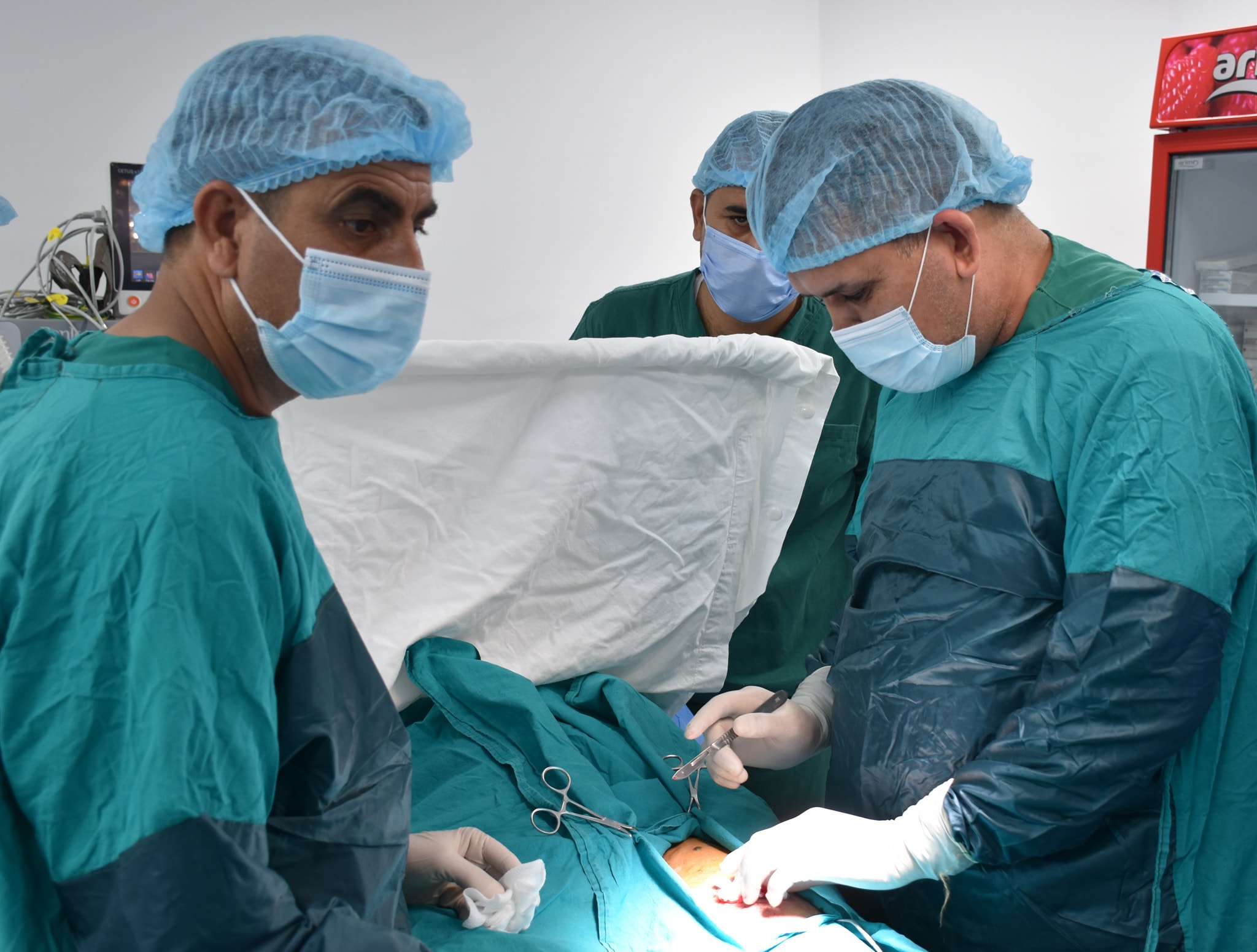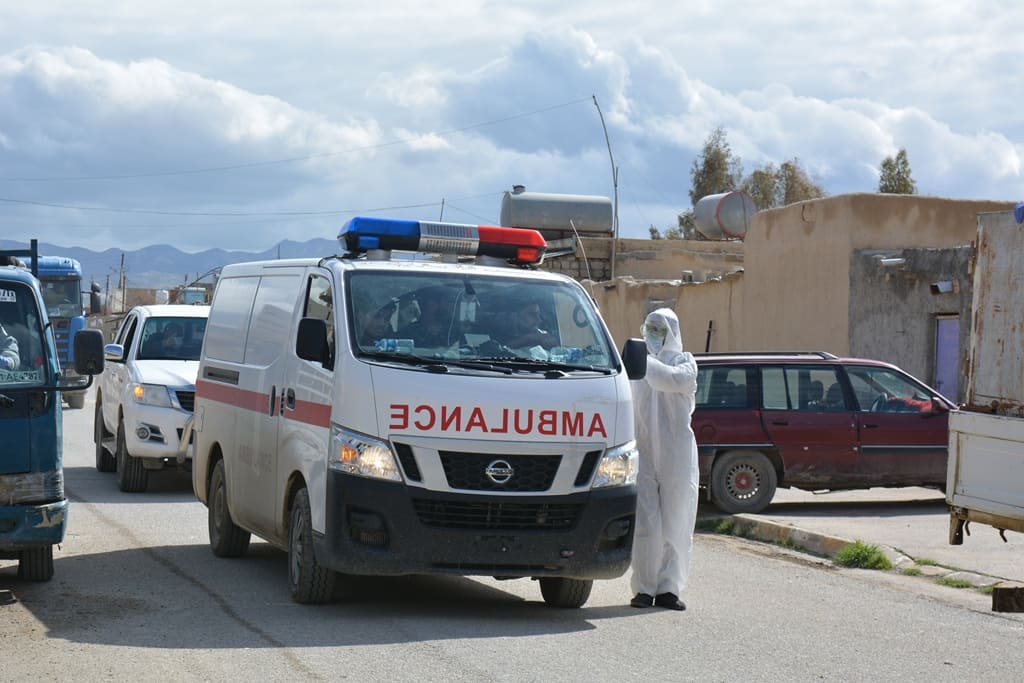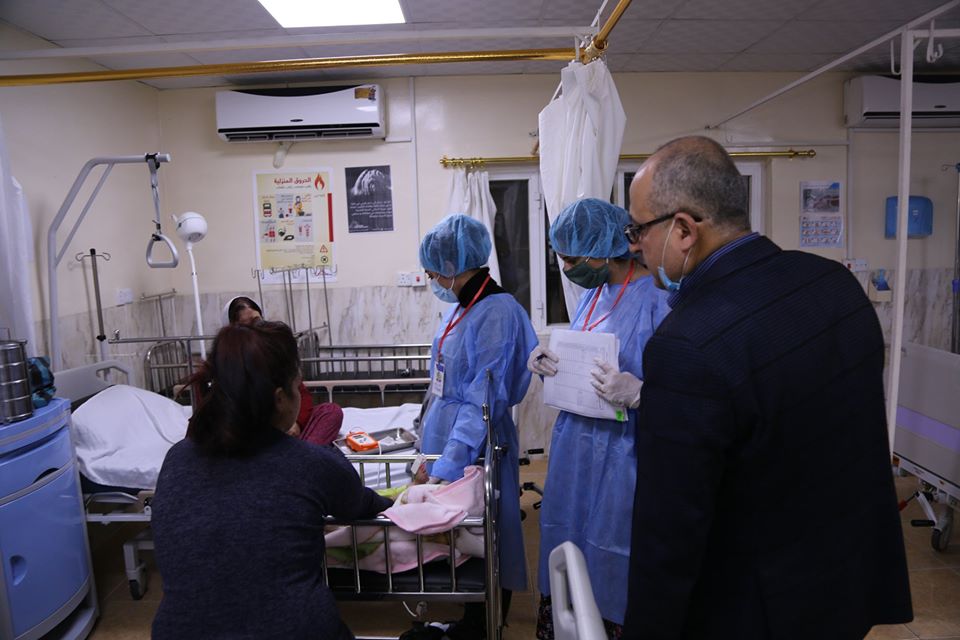There are only five doctors in hospitals and health centers of the war-torn Shingal district center, its sub-districts and villages, most of it fully operating only two days a week.
The statistics of the Iraqi Ministry of Planning indicate that the population of the district is more than 334,000 people, some of whom are still displaced.
According to KirkukNow follow-up, Shingalis can find specialist doctors at Shingal General Hospital at the center of the district center and in the sub-district of Sinuny, two of them are pediatricians and another is an ophthalmologist.
On April 25, 2022, Sirwan Golo, who lives in Solagh village - five kilometers from the center of Shingal, went to Shingal General Hospital because his child had pain and fever “but we waited an hour and a half and the doctor did not show, so we had to buy some medicines from a pharmacy and went back home."
Shingal citizens are forced to go to government hospitals in Dohuk governorate - 200 km away - or Mosul - more than 125 km away - in order to be able to be checked by specialist doctors, especially for chronic diseases such as heart problems, internal medicine, fractures and others.
"I hope to go to the hospital one day and find a doctor there. In fact, there are doctors and nurses in that hospital, but they are not committed to working hours, and most people are not able to visit private clinics or hospitals in other cities because of their poor financial capabilities," Golo added.
Iraq’s healthcare system which was once one of the most advanced in the region now is in serious crisis. There’s a shortage of drugs and the medical staff to administer them. Over the past three decades the country has been ravaged - by Iraqi-Iran war, Saddam Hussein’s invasion of Kuwait, ousting of Saddam regime followed by sectarian violence and the war against al-Qaeda and the rise of Islamic State in Iraq and Syria ISIS.
The political chaos after 2003, pushed an estimated 15,000 out of 52,000 registered Iraqi doctors to leave the country. The young student doctors primarily seek training and life abroad rather than permanent state employment.
In addition to the lack of medical staff, equipment and medical equipment, Shingal residents complain about the lack of commitment of health sector employees to work hours.
But Dilshad Abdullah, director of Shingal General Hospital, told (KirkukNow), "There was only one case in which a doctor working here on temporary appointment was late for work, which angered some citizens, except that everyone is committed to working hours."
we lack doctors specialized in the fields of radiology, ultrasound, cardiology and orthopedics
Shingal hospital and most of the health centers in Shingal were destroyed during the period of ISIS control from August 2014 until late 2015.
“We do not have problems in terms of buildings, nurses, and medicines, but we lack doctors specialized in the fields of radiology, ultrasound, cardiology and orthopedics. We have repeatedly asked to provide these specialties, but to no avail,” Dilshad pointed out that there are only three doctors in the Shingal district, two of them Temporarily (placement) and they work two days a week.

Shingal General Hospital was built in 1957 and has over than 900 nurses and staff.
Beside the two main hospitals of Shingal and Sinuny, there are health centers in other areas of Shingal. In Sinuny, there are only two doctors, one is a pediatrician and the other is an ophthalmologist, while there are no doctors available in the health centers located in the Al-Qahtaniyah (Tal Uzair) sub-district and other complexes and villages, as health centers there are supervised by nurses or medical assistants. Besides, there are no private clinics and hospitals in those areas.
In the Ezidi-dominant region of Shingal, only three thousand square kilometers, Baghdad federal and Erbil regional governments compete to establish their rule: three local administrations want to administer the district, and eight different armed groups are deployed.
The unstable security situation has left the war-ravaged region missing rebuilding leaving the public utilities in dire conditions.
According to the Shingal agreement concluded between the Iraqi federal government and the Kurdistan Regional Government KRG in October 2020 to reorganize the administrative, security and service file in the Shingal district, the local police, the intelligence service and the National Security Service NSS, in coordination with the security forces of the KRG will be assigned to manage the security file of Shingal while the armed forces of the federal government will be deployed in the outskirts of the.
As the agreement was aimed improving life post-ISIS, the agreement has not come to effect up today as the rivals each push for having an upper hand.
Saeed Shammo, a member of the independent Shingal Youth Gathering, told (KirkukNow) that the health sector suffers from many problems, including the lack of specialized doctors and commitment of some medical staff to working hours.
“The doctors come whenever they like. Sometimes they show up at 10 am and even later at mid-day while they leave 2.30 pm,” Shammo said.
"The hospital director cannot press the doctors to abide by the appointments, or else they will ask to be transferred to other areas, which will make matters worse," he stressed.
The Independent Youth Gathering of Shingal, which includes approximately 50 youths from Shingal, undertakes the task of following up on citizens' problems and communicating them to officials in order to address it.
Shammo says that portraying Shingal in the media as an unsafe area led to a negative impact. "All the doctors are now refusing to come to Shingal....Due to the lack of doctors, the people are forced to go to Mosul or Dohuk."
In 2019, the government allocated just 2.5% of the state’s $106.5 billion budget to its health ministry, while security forces received 18% and the oil ministry 13.5%. Over the past decade, data from the World Health Organization shows, Iraq’s central government has consistently spent far less per capita on healthcare than its much poorer neighbors - $161 per citizen each year on average, compared to Jordan’s $304 and Lebanon’s $649, a story by Reuters found.

At least 500 patients visit Shingal General Hospital in the district center every day,” said an employee of the health sector in Shingal on the condition of anonymity.
“We do not face problems in terms of the availability of some medical devices and medicines. Our only problem is the lack of specialized doctors.”
He attributed this to the commitment of some medical staff living out of Shingal, some of them coming from Mosul or some areas of Dohuk Northern Province.
The district of Shingal, 120 km west of Mosul, administratively is affiliated to Ninewa Province, and part of the disputed areas between Erbil and Baghdad. It and is inhabited by the majority of Ezidi community.
ISIS took control of Shingal and was ousted on November 13, 2015 during that period over a thousand Ezidis were killed, and thousands were enslaved, mainly women and children.
Up to the present, thousands prefer to live under tents in Duhok rather than returning to a devastated region lacks the basic public services.






